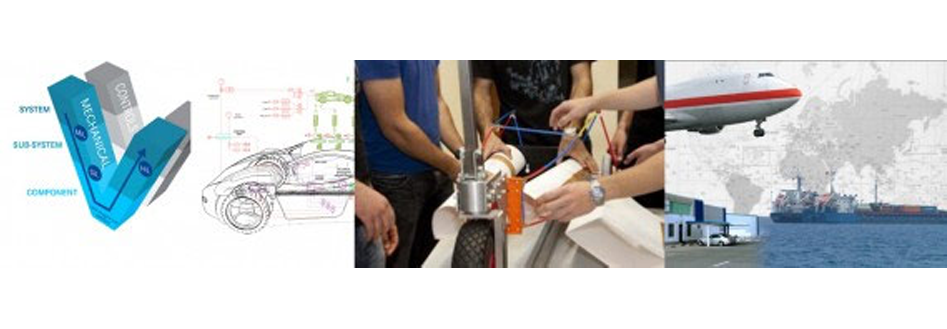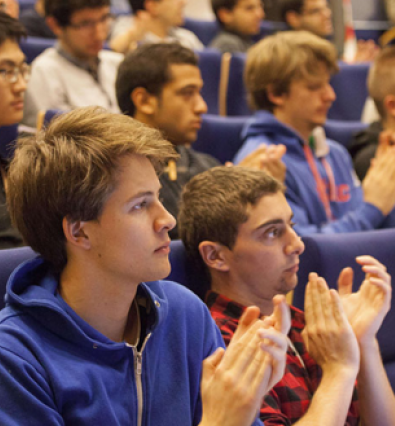The Master’s degree program coordinated by CentraleSupélec (Châtenay-Malabry and Gif-sur-Yvette campuses) is developed in partnership with the member institutions of Université Paris-Saclay. It is presented in the “School: Engineering, IT Sciences and Technologies” section and is organized into eight independent programs for the September 2015-June 2020 period. Visit: https://www.universite-paris-saclay.fr/en/education/schools
Master in Complex Systems Engineering
Description
The Complex Systems Engineer Master’s program teaches students to understand modeling, design and management of systems produced, (particularly industrial) processes and organizations, based largely on modeling sciences, systems engineering and systems sciences and industrial engineering.
In terms of disciplines, this Master’s is at the crossroads between applied mathematics, IT, operational research, mechanics, automation, economics, tool design management and production. It covers organizational science, interactive agent systems analysis and the study of technical and organizational systems. Students will learn how to make bridges between modeling, digital simulation, design, managing and optimizing social and technical systems for industrial and service sectors.
Career opportunities
This program offers two options:
- An in-depth initiation to research wherein theoretical aspects are always applied to existing issues with social and technical systems. At the end of the Master’s or thesis, students are able to take on responsibility within companies as managers of development projects, supply chain, purchasing, systems architecture, risk, production, or mechanical/mechatronic systems design.
- training that is more oriented towards industry to become a logistics or production manager or executive.
Key words
Complex systems engineering, systems engineering, industrial engineering, design, industry, company, control, logistics systems, organization, steering, maintenance, aeronautics, health, modeling, simulation
Contact
Bernard Yannou bernard.yannou@centralesupelec.fr
1st year Master’s: Complex Systems Engineering, Research route (International track)


The objective of the Research route 1st year Master’s degree program is to train students in the field of Complex Systems Engineering and particularly Industrial Engineering with a “research approach” based on modeling tools, design and management of complex industrial systems.
This training therefore aims to provide students with an understanding of the essential issues associated with design, production and distribution processes within product and service companies, and introduce them to approaches, models and tools for designing, analyzing, simulating, managing and optimizing these processes.
In term of disciplines, this training program is at the crossroads of several fields, including decision-making support, design, production, applied mathematics, operational research, management, IT, mechanics and automation.
Contact
Asma Ghaffari asma.ghaffari@centralesupelec.fr
2nd year Master’s: Design Engineering (International track)


This track teaches students through and about research in the fields of engineering and management of complex systems design (Design Engineering and Design Management).
The objective of the Design Engineering track in this Master’s program is to train students for designing and developing complex systems. Several types of complex systems are covered in the course: technical complex systems such as automobiles or planes, unique complex systems such as satellites or booster rockets, as well as socio-technical systems such as organizational, energy or healthcare systems.
Methods and tools are particularly taught with the aim of students learning how to develop models and simulations linked to representing a studied or designed system and of predicting how it will behave and perform.
The course is adapted for students wishing to learn more in the field and who intend to pursue an academic career, as well as students aiming for an industrial career within R&D departments of large organizations, management positions in the fields of product and service innovation, or design and development in any company, whatever its size or sector.
Contact
Marija Jankovic marija.jankovic@centralesupelec.fr
2nd year Master’s: Optimization of Industrial Systems and Logistics (International track)


The aim of the OISL track is to train 2nd year Master’s students in research in the field of optimization of industrial systems and logistics, also called supply chain management. The objective of this program is to provide students with an understanding of issues associated with research they may meet in industrial systems and logistics, along with methods and tools to help them resolve those issues.
Contact
Evren Sahin : evren.sahin@centralesupelec.fr
Master in Civil Engineering
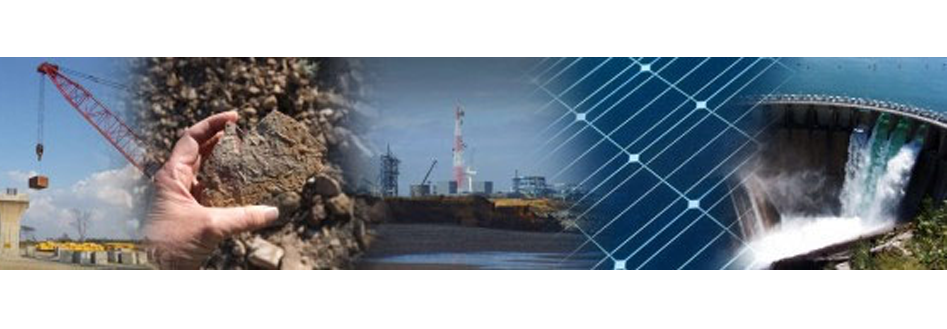 Description
Description
The program is oriented towards subsurface engineering, as well as the strong interaction between the ground and buildings, exploration and exploitation of reservoirs and storage sites (water, gas, petroleum, CO2, waste) is one of the major objectives.
This program is open to students who have completed a Civil Engineering, Mechanics, Physics, Earth Science or Engineering university program either in France or abroad.
Career opportunities
This course prepares students for research careers within large research organizations (CEA, BRGM, Andra, IFPEN, etc.) or consultancy within engineering offices and consultancy firms (Tractebel Engineering, Solétanche-Bachy, etc.).
Research organizations and companies in the sectors of civil engineering (Solétanche-Bachy, EDF, SNCF, etc.) and environment or energy (Total, Schlumberger, etc.) have increasing needs in the following fields:
- Geotechnology
- Controlling natural and anthropogenic risks (drought, flooding, earthquakes, landslides, oil slicks, etc.)
- Exploration, exploitation and maintenance of reservoirs and subsurface storage sites
Contact
Arézou Modaressi : arezou.modaressi@centralesupelec.fr
1st year of Master’s: Geomechanics: Works, Water, Reservoirs (International track)


The Civil Engineering Master’s program aims to give students a high-level scientific literacy and a technological literacy focused on current industrial challenges associated with mechanics, civil engineering and the environment. This double literacy enables students to focus on careers in research, R&D engineering or higher education, in keeping with their professional goals.
Semesters S1 and S2 of the 1st year Master’s are intentionally non-specialized, giving students freedom in their choices for S3 and S4. Classes in the 1st year Master’s are organized into coherent teaching units that help students acquire skills for organizing and managing works associated with high-level scientific and technical business activities. The first semester comprises common core modules covering the theoretical disciplines and fundamental knowledge required for all tracks. Students then choose their focus. Their focus helps them to choose their tracks for S3 and S4. The interdisciplinary nature of the course and orientation to a wide range of business sectors is the main strength of this program, particularly in terms of career perspectives.
Contact
Arézou Modaressi : arezou.modaressi@centralesupelec.fr
2nd year Master’s: Geomechanics: Works, Water, Reservoirs (International track)


For the past 30 years, this track has been training specialists in understanding and modeling complex phenomena associated with geomaterials (soil, rock, concrete) and works and structures in relation to their interaction with the environment, by providing students with the fundamentals of mechanics, physics and digital modeling. These themes are sought after by research organizations and companies in civil engineering, environment and energy sectors with increasing needs in the following fields:
- Geotechnology
- Controlling natural and anthropogenic risks (drought, flooding, earthquakes, landslides, oil slicks)
- Exploration, exploitation and maintenance of reservoirs and subsurface storage sites.
Contact
Fernando Lopez Caballero : fernando.lopez-caballero@centralesupelec.fr
Master in Nuclear Energy
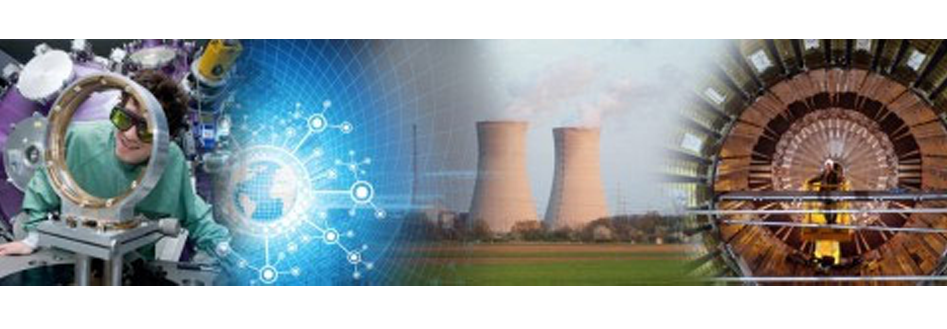 This program is intended to meet the needs arising from the considerable renewed interest in nuclear energy at the international level. In France alone, the demand for new engineers and managers for the nuclear industry will be on the order of 1,000 per year, at least, over the next 10 years.
This program is intended to meet the needs arising from the considerable renewed interest in nuclear energy at the international level. In France alone, the demand for new engineers and managers for the nuclear industry will be on the order of 1,000 per year, at least, over the next 10 years.
Teaching
The Nuclear Energy specialized curriculum – a professionalizing program, which is also research oriented to a certain extent – is jointly offered with Paris-Sud University, and INSTN. The curriculum’s pedagogical objectives include providing an introduction to multidisciplinary methodological research and a preparation for careers in large industrial corporations.
Strengths
CentraleSupélec is heavily involved in meeting the pressing demand of the nuclear industry for specific expertise by training a significant number of managers, especially foreign, in nuclear technologies. The program has a strong international orientation, both in its recruitment of foreign students and in its training, which is conducted entirely in English. This Master’s program is open to, and specifically designed for, foreign students from countries with strong potential demand for nuclear expertise, and from countries where the companies that support this training are established for long-term nuclear operations. The presence of these companies abroad makes them potential employers of the foreign students enrolled in the program.
Partnership
CentraleSupélec takes part to Knowledge Innovation Community (KIC) InnoEnergy. The EIT Label is a quality seal awarded by the European Institute of Innovation and Technology (EIT) to a KIC educational programme that has been assessed positively by the EIT on the implementation of the EIT Quality Assurance and Learning Enhancement (EIT QALE) system and the application of specific quality criteria with focus on the EIT Overarching Learning Outcomes (EIT OLOs), robust entrepreneurship education, highly integrated, innovative ‘learning-by-doing’ curricula, international mobility and outreach
- To learn about European Institute for Innovation and Technology/ Knowledge Innovation Communities (EIT-KICs)
Contact
Pascal Bernaud : pascal.bernaud@centralesupelec.fr
M2 Operations (International track)


Learning how to manage the operation and maintenance of a nuclear plant
This specialization is designed to prepare students to operate, manage, and maintain nuclear installations, especially electronuclear power plants. It provides a solid knowledge of the physical phenomena that can affect the safety functions of an installation. It trains students in all of the procedures and measures designed to ensure operational safety and human and environmental protection, under normal, disrupted, and crisis conditions. Operations that rely on the daily actions of personnel – the human factor – and safety management all form an important part of this specialized training.
Objectives
In addition to technical knowledge, this specialization is designed to provide students with a broad and comprehensive vision of the field of nuclear energy, combining both technical and organizational and managerial skills.
Upon completion of the training program, students will have acquired the following expertise:
- Nuclear plant operation and maintenance
- Operation procedure and safety rules, safety management
- Radioprotection principles and methods used in operations, safety-radioprotection articulation
- Optimization of plant performance
- Teamwork, collective division of complex installation representations, human factors
- Nuclear-specific regulations
In addition to multidisciplinary technical skills, students develop the capacity to bring together the various domains involved in the operation of nuclear installations, thus acquiring the skills necessary to direct and manage services.
Program
First Semester
-
Common Core:
-
Introduction to Safety
-
Nuclear Power Plant Management
-
Risk Assessment and Management
-
Environment-Society
-
Radioprotection
-
Applied Nuclear Physics
-
-
Specialization Courses
-
Nuclear Systems Operations
-
Radioprotection (2)
-
Reactor Thermal Hydraulics
-
Second Semester
-
Specialization Courses:
-
Safety and Production
-
Nuclear Systems Maintenance
-
Instrumentation and Calculation Codes
-
-
Internship
Contact
Jing Dai : jing.dai@centralesupelec.fr
M2 Decommissioning and Waste Management (International track)


Developing skills related to nuclear plant decommissioning and to waste management that protects natural and human environments
This training provides the necessary expertise for nuclear plant decommissioning operations and waste management. It also covers all the measures designed to ensure human and environmental protection in relation to these activities.
Teaching
Upon completion of the training program, students will have acquired the following expertise:
-
Waste management
-
Analysis and resolution of issues related to nuclear installation decommissioning
-
Project management and planning
-
Waste- and decommissioning-related radioprotection
-
Decommissioning economics
-
Decommissioning and waste management rules and regulations
Program
First Semester
-
Common Core:
-
Introduction to Safety
-
Functional Description of Nuclear Power Plants
-
Management, Risk Management
-
Environment-Society
-
Radioprotection
-
Applied Nuclear Physics
-
-
Specialization Courses:
-
Dismantling Policy, Strategy, and Management
-
Decontamination and Environment
-
Radioprotection (2)
-
Second Semester
-
Specialization Courses:
-
Instrumentation and Calculation Codes
-
Dismantling Methods
-
Dismantling Waste and Sewage Management
-
-
Internship
Contact
Xavier Vitart : Xavier.vitart@centralesupelec.fr
Master in Energy
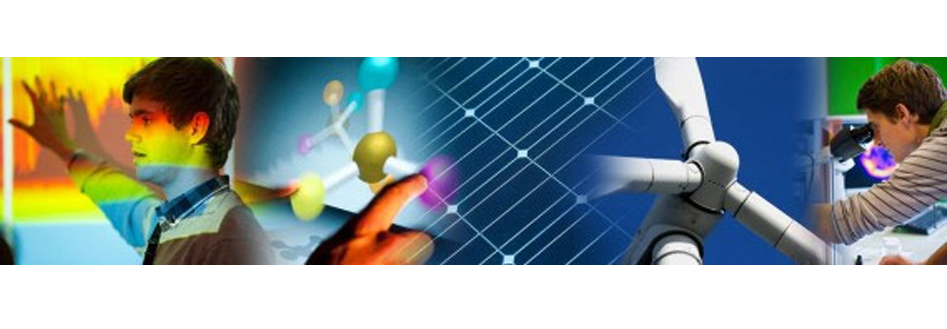 Description
Description
The training program globally and transversally covers the field of physical energy (from numerous sources, production, conversion, storage, management) and its complex interaction with transportation. Energy produced must indeed be efficiently transported and used. Transportation of goods and people requires energy and therefore the improvement of propulsion methods (electric, hybrid and combustion propulsion), and conversion and storage of energy and structures (reduction, resistance and assembly procedures).
Themes covered in the Energy Master’s degree are largely represented in the research activities of partner institutions and regional R&D centers. Indeed, this training program is supported by an exceptional network in the field of Energy on the Saclay Plateau: three Energy Transition Institutes (IPVF for photovoltaic energy, VEDECOM for carbon-free mobility, PS2E for energy efficiency) and several academic (CNRS, CEA, etc.) and industrial (Renault, PSA, Thales, Safran, EDF, etc.) research laboratories.
Career opportunities
This stream aims to train future professionals in the sector of energy who will be addressing the scientific challenge of energy transition in the years to come.
The Energy Master’s degree also meets the triple requirements of visibility, comprehensibility and attractiveness for students, training them for careers identified in many industrial sectors (solar, wind, smart grids, batteries, vehicles and sustainable transport).
Contact
Christophe Laux : christophe.laux@centralesupelec.fr
M1 Energy - International track


One of the world’s most pressing challenges is to meet the fast growing demand for energy while at the same time reducing greenhouse gasses and pollutant emissions. Today, and for the foreseeable future, 80% of the energy consumed in France comes from fossil fuels (more than 85% in developed countries, and almost 100% in developing countries), but the production of renewable and nuclear energy is bound to increase sharply.
This situation opens exciting new challenges in developing cleaner and more efficient energy production methods, as well as more effective energy distribution systems. The goal of this 1st year Master’s program is to provide solid scientific foundations in the field of energy science.
In particular, it prepares students to join all 2nd year specialties offered in the Energy program of Université Paris-Saclay. All 1st year Master’s classes are taught in English; intensive French courses are scheduled for non French-speaking students in order to give them access to the 2nd year Master’s specialties, which are mostly taught in French.
Contact
Gabi-Daniel Stancu : gabi-daniel.stancu@centralesupelec.fr
2nd year Master’s: Thermal Sciences

The aim of the Thermal Sciences track is to train executives, providing a solid scientific training so that they can work in positions of highest-level responsibility in all energy sectors (production, transformation, distribution, consumption). Career opportunities for a first position are particularly strong in research and R&D positions within academic organizations, research centers in large industrial companies and development departments in small companies and start-ups.
In particular, this program prepares students wishing to pursue their studies to doctoral level in an academic or industrial environment, in the fields of energy and transport.
Contact
Benoît Fiorina : benoit.fiorinia@centralesupelec.fr
2nd year of Master’s: Energy Processes

The objective of the Energy Processes track is to train executives to be able to work in the highest positions in sectors involving production, transformation and use of energy. The most common career perspectives are in research and R&D careers, either in research laboratories, industrial research centers of large companies, or development departments of small companies and start-ups.
After completing this track, students can pursue a doctorate in the fields of process and materials engineering, or can begin a career in R&D in industrial companies.
Contact
Marie-Laurence Giorgi : marie-laurence.giorgi@centralesupelec.fr
2nd year Master’s: Aeronautics and Space: Mechanics, Automation and Energetics

This track is research-based. Career opportunities are of a scientific and technical nature in fluid mechanics, propulsion and systems, automation and signal processing, all applied to the field of aeronautics and space in the R&D sector.
As such, this program trains future researchers and engineers in R&D for positions in academic and industrial research centers, engineering consultancy firms or higher education.
Contact
Sihem Tebbani (voie automatique) : sihem.tebbani@centralesupelec.fr
Frédérique Laurent (voie Mécanique Energétique) : frederique.laurent@ecp.fr
Master in Computer and Information Sciences
 Description
Description
The objective of the Information Sciences Master’s program is to train industrial or research professionals to master the theoretical foundations of IT, and the various concepts and tools implemented in today’s IT systems.
Data sciences needs in the decade to come will be significant: the need for data scientists is felt in key individual fields (information searches, education, culture, social networks), scientific fields (e-science), social fields (healthcare, education, e-government), and economics (industrial production, advertising, sales).
The success and relevance of these applications rely on the development of innovative methods that enable us to exploit huge volumes of diverse and unstructured data (Big Data). Studying this subject opens doors for students in executive and senior executive IT career roles in industrial and service sectors, or careers in research and R&D, in managing data in universities, public or private research organizations, large companies and start-ups.
Contact
M2 Decision Support and Business of Intelligence (International track)


Business Intelligence, or decisional computing, represents a group of tools, methods and techniques that collect and analyze internal and external data in order to produce knowledge that allows strategic decisions to be taken. In our information society, organizations are constantly flooded with a torrent of information, and the speed with which a company is able to collect, clean, transform, integrate, stock, explore, analyze and control this flow of data is a key factor to success.
Business Intelligence has been an important industrial field for the last twenty years and its market continues to expand very rapidly; it is little affected by the economic crisis.
Teaching
Business Intelligence is historically a combination of techniques related to the storage and exploration of data. But the development of the data that we handle (either structured in databases or unstructured, e.g. in documents), the evolution of its users (less and less specialized in information technologies) and methods of communication (smartphones, tablets, social networks) foreshadow major changes in Business Intelligence software applications, opening the way to major research and innovation. This Master’s offers the key elements for meeting these challenges using semantic technologies, analytic visualization, decisional science and the exploration of data.
Program
All the courses are taught in English, and are based on the Erasmus Mundus IT4BI Master (Information Technologies for Business Intelligence). The cursus offered covers the following Teaching Units (UE):
-
4 UE for scientific and technological courses (5 ECTS per UE)
-
Semantic Technologies
-
Exploration of data and training
-
Analytic visualization
-
Modeling for decisional aids
-
-
1 UE for the introduction to innovation and research (5 ECTS)
-
1 UE for French language and European culture (5 ECTS)
-
1 UE for R&D project (Internship) (30 ECTS)
Career opportunities
Doctorate or R&D teams, either in major groups or in innovative SMEs. From the industrial point of view, the ever-increasing quantity of data, the rapid and complex changes in the economy and the emerging tendency to incorporate unstructured data in analytical processes bring new challenges to the field of decisional computing. Academically, new research opportunities are created by the recent development in users’ requirements and concern the management of structured data and unstructured content (analysis of documents, personalization and recommendation, graph databases, composition of knowledge bases, mapping company data, etc.).
Contact
Nacéra Seghouani Bennacer : nacera.bennacer@centralesupelec.fr
Master in Mechanics

Description
The opportunities after a thesis in the field are numerous, the socio-economic environment defined by the keywords characterizing this Master being very demanding both engineers and teacher-researchers. This master also benefits from the strong industrial relations that characterize this field of research and development. It provides access to careers in academia, major public and private research laboratories and high-tech industries (aeronautics, space, energy, automotive and transportation, advanced engineering) and in the fast-growing field Of digital engineering.
The training is supported by several companies (AIRBUS, ASTRIUM, SAFRAN, EDF, CEA, Renault, PSA Peugeot Citroën, AREVA, software company) offering internships and some providing specialization courses.
Contact
Guillaume Puel : guillaume.puel@centralesupelec.fr
1st year Master’s: Mechanics - International track

Description
The MSc (Mechanics) combines intensive scientific training with high-level technological culture of the great industrial challenges in the field of Mechanics. This two-pronged approach leads into careers in engineering, research, or higher education. The first M1 year takes a generalist approach, with more specialised electives in the M2 year. M1 teaching introduces the core skills required for high-level scientific and technical project management in the field of mechanics, and includes in the first semester the theoretical and fundamental knowledge required in all professional tracks. The second semester of the M1 year is based on elective blocks, which in turn feed into the M2 specialisations. There is a high degree of flexibility in the programme, and it is often possible, after the M1 year, to follow specialisations in other fields than mechanics.
Contact
2nd year of Master’s: Modeling and Simulation in Structures and Coupled Systems Mechanics

Description
The Modeling and Simulation in Structures and Coupled Systems Mechanics 2nd year Master’s is a research-based training program, both practical and theoretical, teaching students about advanced techniques in Modeling and Simulation of Structures and Complex Systems Mechanics.
Contact
Master in Electrical Engineering

Description
The objective of the IT Master’s program is to train industrial or research professionals to master the theoretical foundations of IT, and the various concepts and tools implemented in today’s IT systems.
Data sciences needs in the decade to come will be significant: the need for data scientists is felt in key individual fields (information searches, education, culture, social networks), scientific fields (e-science), social fields (healthcare, education, e-government), and economics (industrial production, advertising, sales).
The success and relevance of these applications rely on the development of innovative methods that enable us to exploit huge volumes of diverse and unstructured data (Big Data). Studying this subject opens doors for students in executive and senior executive IT career roles in industrial and service sectors, or careers in research and R&D, in managing data in universities, public or private research organizations, large companies and start-ups.
Contact
M2 Advanced Wireless Communications systems (International track)


Description
The Master Program AWCS is a research-oriented Master degree in wireless communication and networking. It corresponds to the second year of the 2-year European Master Degree curriculum and all its courses are taught in English. This program aims to convey solid fundamental knowledge in the field of wireless communications as a means to prepare the students for their future research-oriented careers. Courses focus on the theoretical and fundamental methodologies and techniques, which are necessary for understanding key advances in the area of wireless networks. The curriculum spans a large spectrum of material, ranging from information theory and coding to communication theory and networking theory.
The organization of the year is as follows:
- The first semester (September to January) starts with few “refresher” courses that provide the students with solid background in mathematical tools (probability theory, estimation theory, optimization). It is followed by specialized courses on wireless communication and networking, in which baseline tools and key concepts that are necessary for understanding advanced research topics are studied in detail.
- In the second semester (February to March), students attend a series of research seminars on advanced topics in wireless communications and in parallel they prepare a research project.
From April, students pursue a research-oriented internship for a minimum period of four months. The internship can be done in industrial R&D labs or universities in France or abroad.


